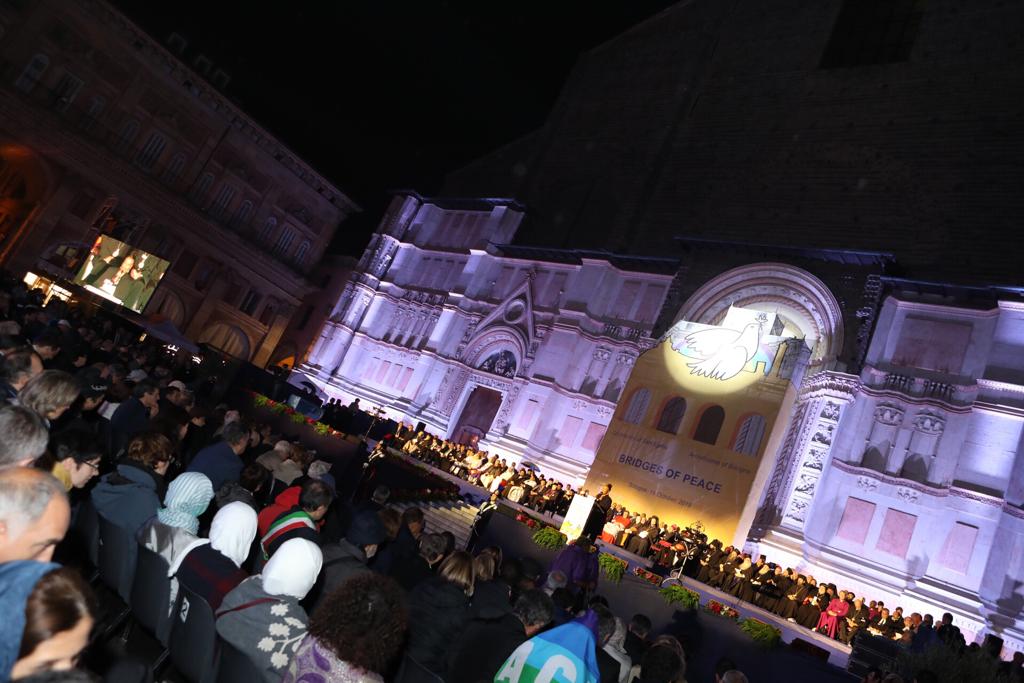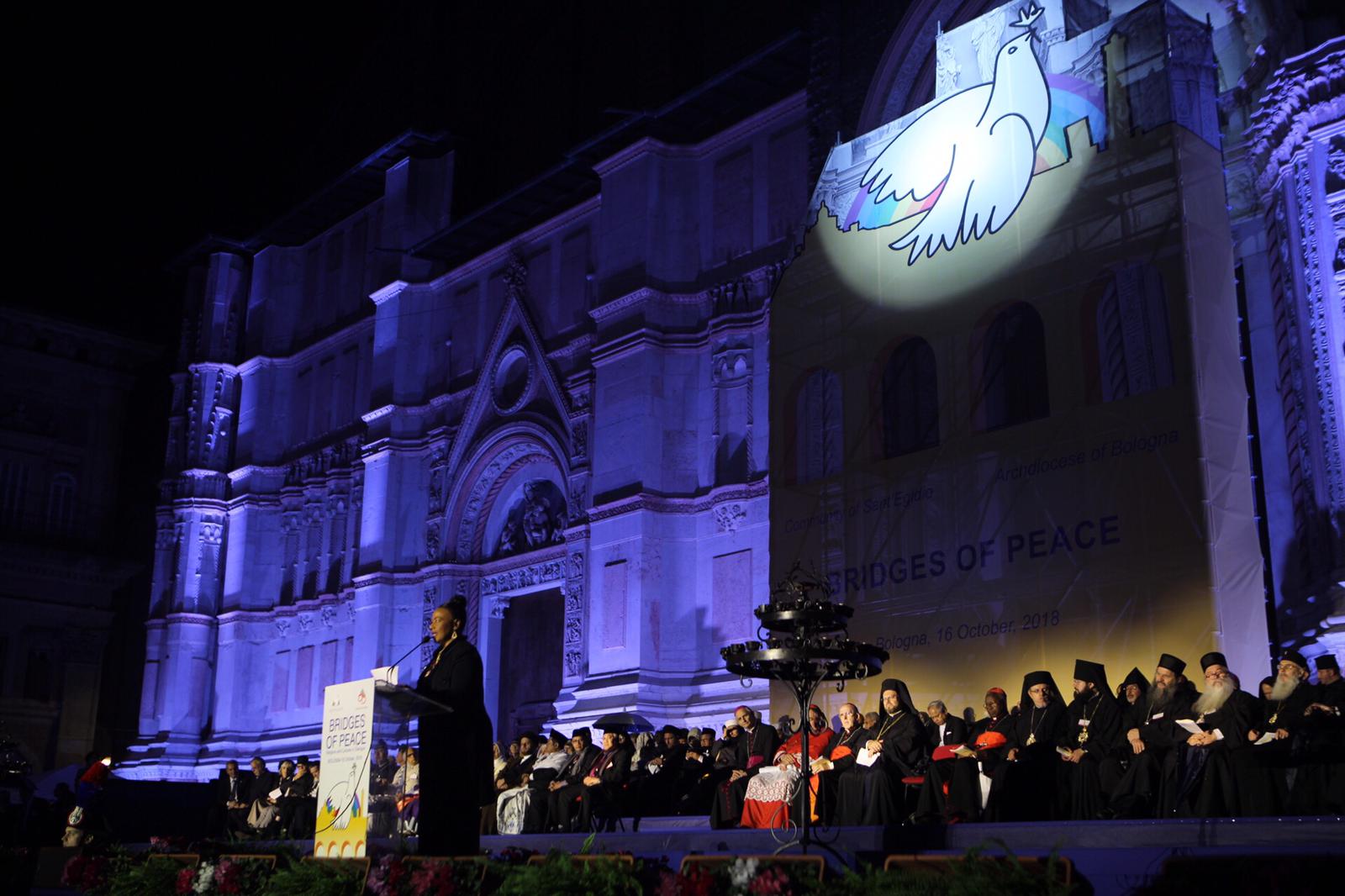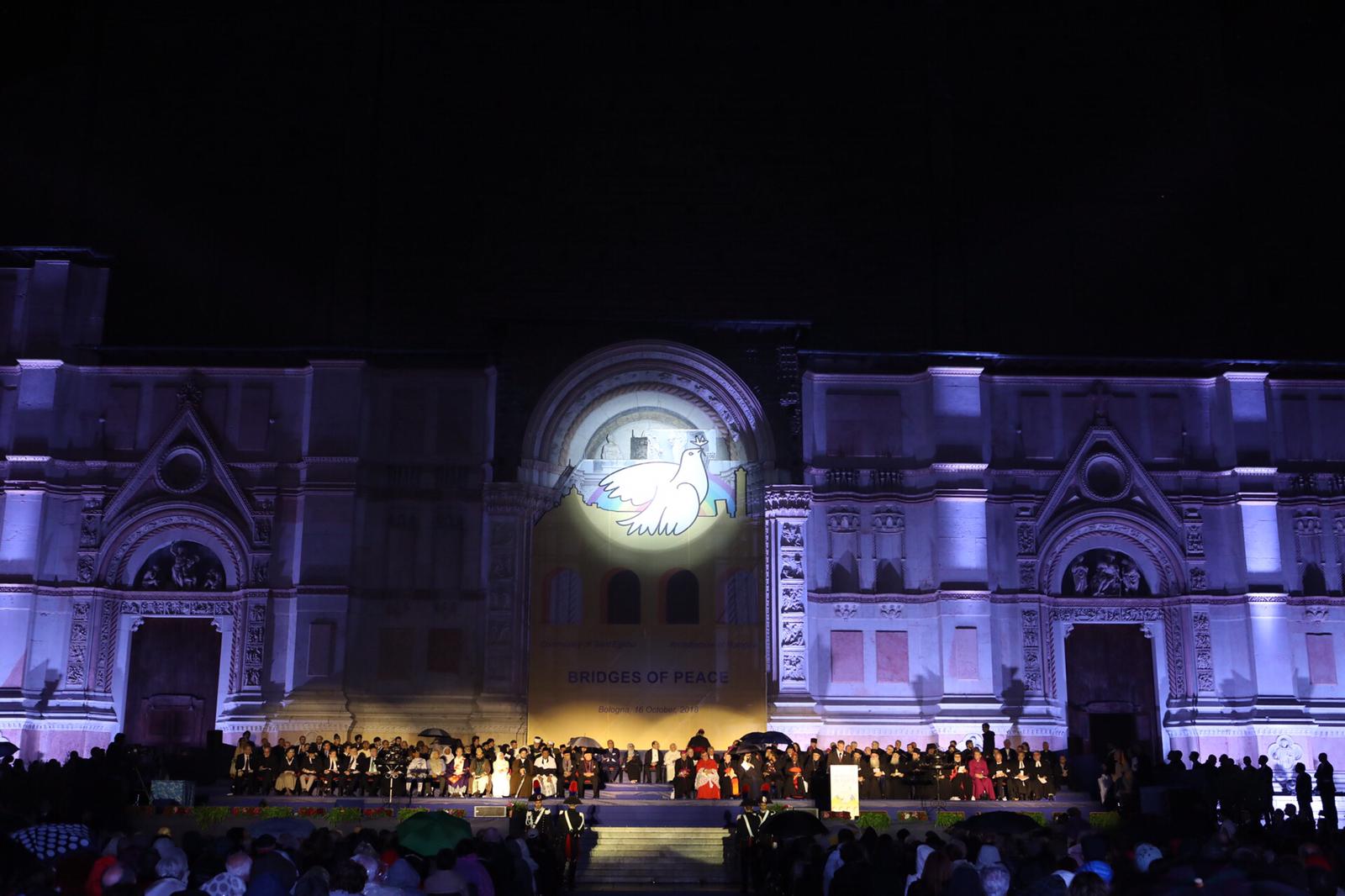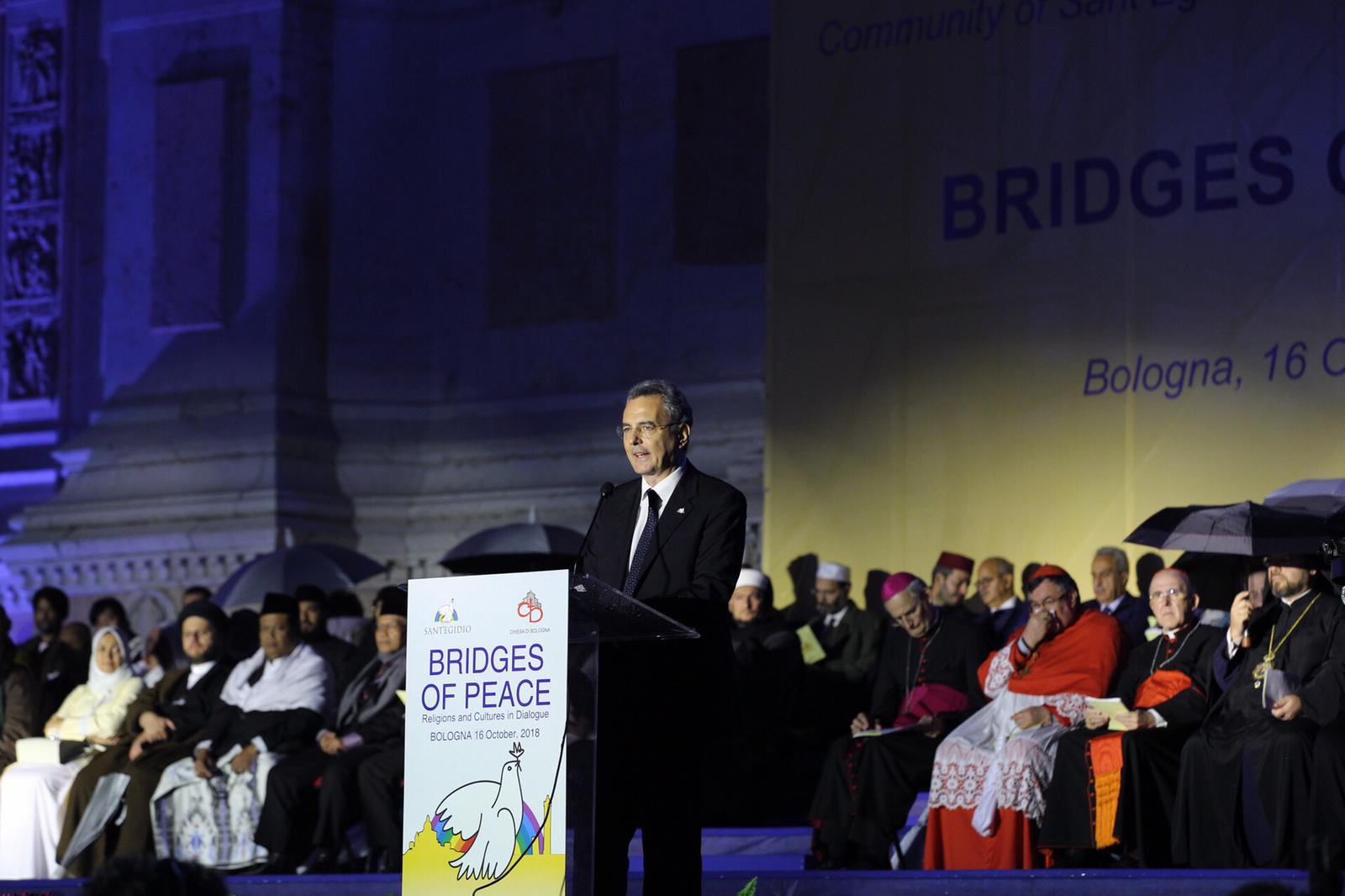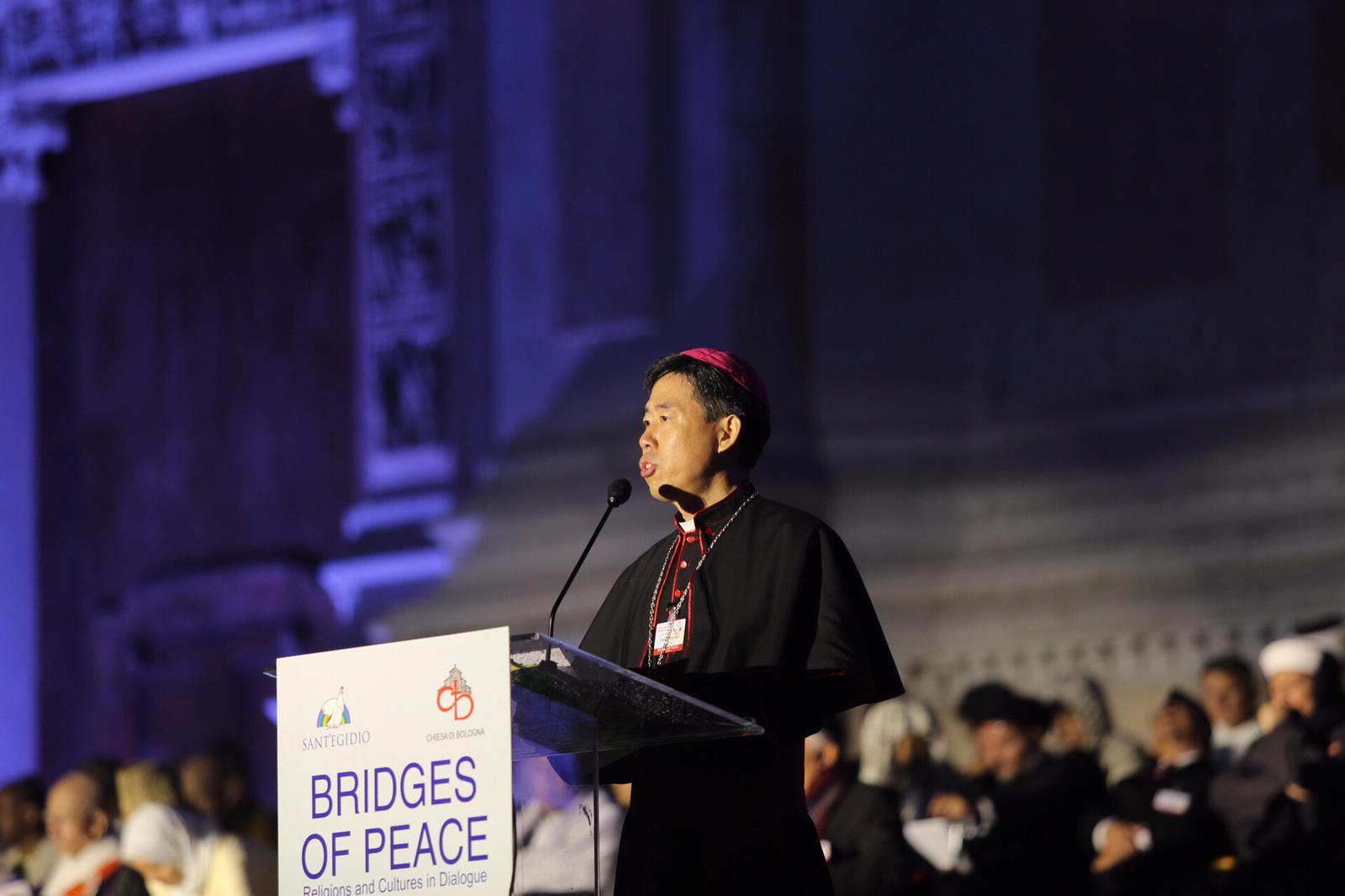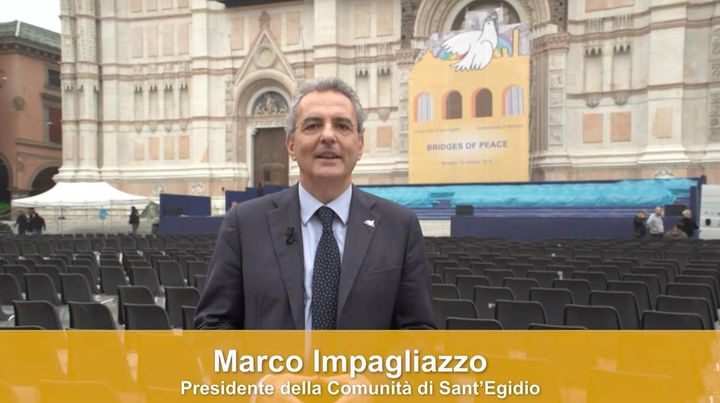In the evening of that same day, the first day of the week, the doors were closed in the room where the disciples were, for fear of the Jews. Jesus came and stood among them. He said to them, 'Peace be with you,'
and, after saying this, he showed them his hands and his side. The disciples were filled with joy at seeing the Lord,
and he said to them again, 'Peace be with you. 'As the Father sent me, so am I sending you.'
After saying this he breathed on them and said: Receive the Holy Spirit.
If you forgive anyone's sins, they are forgiven; if you retain anyone's sins, they are retained.
John 20, 19-23
Peace be with you
With these words the risen Jesus greets his disciples who gather in a house. It was not only a wish for peace, rather Jesus himself gives them his peace, He who is the source of peace, the King of Peace.
In this passage, Jesus turns twice to his disciples and says "Peace be with you". We remark a difference between the two. The first time Jesus restores peace to the troubled soul of his disciples. The second time, He gives them peace so that they communicate it to the others. Indeed, he immediately adds "I send you". Then He breathes on them: "Receive the Holy Spirit. If you forgive the sins of any, they are forgiven them". Then, in the joy of recognizing Him, Jesus entrust his disciples with a mission, which is His mission, the only mission He received from the Father. He sends them as He himself was sent; he sends them to the world, even though they do not belong to the world anymore; He sends them with His peace to face a world of sin, rejection and division. They will have to bear witness and "make a defense to anyone who demands an accounting for the hope that is in them" (1 Pe 1,15). They will have to "prove the world wrong about sin" (John 16,8). This is the reason why Jesus bestows His Spirit on them, the Advocate bearing witness that Jesus' cause is righteous; the Spirit of truth bearing witness to every man that he is the child and heir of God; the Spirit of holiness repeating in us "Abba, Father" and interceding for us with groanings too deep for words (Rm. 8, 26).
Therefore, in our Orthodox celebrations we regularly make reference to Peace. The Holy and Great Council of Crete (June 2016) states in the Chapter "The mission of the Church in today's world": " It is the peace from above, for which the Orthodox Church prays constantly in its daily petitions, asking this of the almighty God, Who hears the prayers of those that draw near to Him in faith". We then understand that we are not spectators, rather we have to become actors! This means that the gift of peace cannot be experienced other than through our efforts at repentance and true love. At the same time, we are obligated to underline that the gifts of peace and justice also depend on human synergy. The Holy Spirit bestows spiritual gifts when, in repentance, we seek God’s peace and righteousness. These gifts of peace and justice are manifested wherever Christians strive for the “work of faith and labour of love and steadfastness of and hope in our Lord Jesus Christ” (I Th 1:3).
Jesus is the Source of Peace. At the same time, He is the One who offers the gift of the Holy Spirit. We have to understand that only if we are pure in heart, we can receive the Holy Spirit and true Peace. Saint Basil the Great wrote: "I cannot convince myself that I am worthy of being called servant of Jesus Christ, unless I am able to love the others and live in peace with everybody - at least inasmuch as it depends on me".
On the contrary, if we live a life full of lies and sins, we experience discomfort, unrest and discord. In the same document of the Holy and Great Council of Crete we read: "Sin is a spiritual illness, whose external symptoms include conflict, division, crime, and war, as well as the tragic consequences of these".
Saint John Climacus writes in his famous work "The ladder of divine ascent": "Remembrance of wrongs is the consummation of anger, the keeper of sins, hatred of righteousness, ruin of virtues, poison of the soul, worm of the mind, shame of prayer... You will know that you have completely freed yourself of this rot, not when you have prayed for the person who has offended you, nor when you exchange presents with him, nor when you invite him to your table, but only when, hearing that he has fallen into spiritual or bodily misfortune, you suffer and weep for him as for yourself".
Therefore, the Church invites us not to give way to our egoism, but rather to try and always act out of respect for the others: “The Church cannot remain indifferent before economic conditions that negatively impact humanity as a whole. She insists not only on the need for the economy to be grounded upon ethical principles, but that it must also tangibly serve the needs of human beings in accordance with the teaching of the Apostle Paul: by laboring like this, you must support the weak. And remember the words of the Lord Jesus, who said, ‘It is more blessed to give than to receive’ (Acts 20:35)". Let me finish my speech by conveying you God's blessing "Peace be with you"
